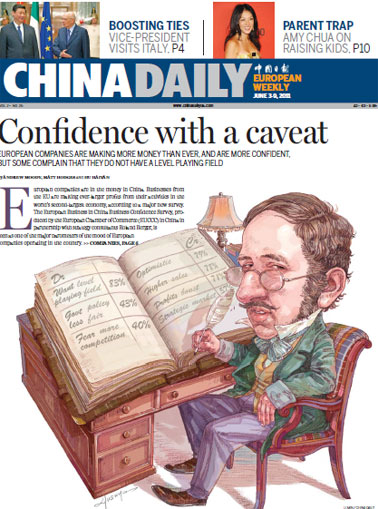Society
Smokers quit after UK ban, but numbers ebb: Study
Updated: 2011-06-07 08:02
(China Daily)
NEW YORK - A 2007 ban on smoking inside public places across the United Kingdom may have led to a spike in the number of smokers trying to quit, but the rise ebbed within months, a study said.
The findings, published in the scientific journal "Addiction", suggest that while smoking bans may influence smokers to quit, they are likely to already be those who are motivated to give up tobacco and that further efforts may be needed to get more to quit.
"Other contextual factors and social norms continue to influence smoking behavior," said Lisa Szatkowski, a researcher at the UK Centre for Tobacco Control Studies at the University of Nottingham and lead author of the study.
"Factors such as the provision of outdoor facilities for smoking, or spending time with smoking friends, may mean smoke free legislation does not act as a continuing stimulus to quit over time," she said in an e-mail.
The study looked at the change in numbers of prescriptions doctors wrote for medications to help smokers quit before and after the law was enacted on July 1, 2007, focusing on 350 medical practices.
The medications included nicotine replacement therapy, the antidepressant bupropion, and the newest antismoking aid varenicline, sold as Chantix in the United States, that came on the UK market in 2006.
In the nine months before the ban, prescriptions for all the medications rose 6.4 percent, but nine months after the ban they dropped 6.4 percent.
"It's frankly a little disappointing, but not surprising," said David Abrams, the executive director of the Steven A. Schroeder National Institute for Tobacco Research and Policy Studies at the anti-smoking organization legacy. Abrams, who was not involved in the study, said the impending ban likely motivated people who were already poised to quit.
Once the ban is in place, "maybe you've already skimmed the cream off the top of those who were already motivated to quit", he added, noting that smoke-free legislation might lead to more quitting if there was additional encouragement from media campaigns, healthcare providers and outreach efforts.
But both he and Szatkowski said the results did not mean that smoking bans are ineffective.
"The primary aim of smoke free legislation was to reduce non-smokers' exposure to environmental tobacco smoke, and the bans in the UK have undoubtedly been successful in meeting this aim. Other research supports this," Szatkowski said.
A previous report found that in the year following the UK smoking ban, hospitalizations for heart attacks dropped 2.4 percent, which the researchers attributed to the legislation.
Reuters
E-paper

Harbin-ger of change
Old industrial center looks to innovation to move up the value chain
Chemical attraction
The reel Mao
Improving app-iness
Specials

Vice-President visits Italy
The visit is expected to lend new impetus to Sino-Italian relations.

Birthday a new 'starting point'
China's national English language newspaper aims for a top-notch international all-media group.

Sky is the limit
Chinese tycoon conjures up green dreams in Europe with solar panels
